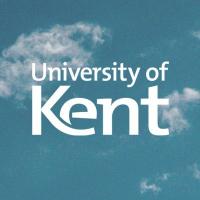Electronic and Computer Engineering - BEng (Hons)
The combination of electronic engineering skills with advanced knowledge of computer hardware and software will prepare you for creating the systems of the future. This course will teach many exciting topics like robotics/mechatronics, embedded systems, and artificial intelligence, as well as prepare you with soft skills like creativity, entrepreneurship and team working.
We base our courses on leading-edge research, which is vital in a field that advances at such a fast pace. We provide you with the skills you need to showcase your creativity. Our graduates with specialist skills in electronic and computer engineering are prepared for the complexities of modern technology and well equipped for professional careers in development, research and production in industry and universities.
We have strong links with the Royal Academy of Engineering and the Institution of Engineering and Technology (IET). Our visiting industrial professors contribute a strong industrial relevance of our courses and therefore students graduate with excellent career prospects.
Campus Information
Canterbury
Our campus is surrounded by beautiful woodlands and overlooks the charming city of Canterbury. We have excellent transport links on campus or you can stroll into town on foot.
Intakes
- Sep
Application Processing Time in Days: 30
Minimum English Language Requirements
| English Level Description | IELTS (1.0 -9.0) | TOEFL IBT (0-120) | TOEFL CBT (0-300) | PTE (10-90) | |
|---|---|---|---|---|---|
| Expert | 9 | 120 | 297-300 | 86-90 | |
| Very Good | 8.5 | 115-119 | 280-293 | 83-86 | |
| Very Good | 8 | 110-114 | 270-280 | 79-83 | |
| Good | 7.5 | 102-109 | 253-267 | 73-79 | |
| Good | 7 | 94-101 | 240-253 | 65-73 | |
| Competent | 6.5 | 79-93 | 213-233 | 58-65 | |
| Competent | 6 | 60-78 | 170-210 | 50-58 | |
| Modest | 5.5 | 46-59 | 133-210 | 43-50 | |
| Modest | 5 | 35-45 | 107-133 | 36-43 | |
| Limited | 4 | 32-34 | 97-103 | 30-36 | |
| Extremely Limited | < 4 | < 31 | < 93 | < 30 |
Job Opportunity Potential
Our graduates go into careers in areas such as:
- electronic engineering and computing
- telecommunications industries including radio, television and satellite communications;
- medical electronics, instrumentation and industrial process control.
They have gone on to work in companies including:
- BAE Systems
- Nokia
- the Royal Navy
- Xilinx
- British Energy
- RDDS.
Some graduates choose to go on to postgraduate study, for example, PhD or Masters by Research in Biomedical Engineering, Electronic Engineering or Mechanical Engineering.
PSW Opportunity
2 Years PSW is applicable after the course. (Bachelors & Masters only)
Admission Requirement / Eligibility Criteria
Entry requirements
Qualification requirements
A good honours degree (minimum 2:2) from the UK or an equivalent internationally recognised qualification in a non-business-related discipline.
All applicants are considered on an individual basis and additional qualifications, professional qualifications and relevant experience may also be taken into account when considering applications.
India
For entry to a Kent postgraduate degree programme (Master’s), Indian students typically need to have completed a three or four-year undergraduate degree (Honours Bachelor degree or Professional degree) at an accredited university or college. General Bachelor degrees may sometimes be considered. Exact requirements will depend on the postgraduate degree you are applying for and the institution you have studied at.
- For programmes that require a 2:1, we usually ask for a First Class degree, a final CGPA of 6.0/10, or 60%. Students from top institutions may be considered with a high Second Class degree, a final CGPA of 5.5/10, or 55%.
- For programmes that require a 2:2, we usually ask for a high Second Class degree, a final CGPA of 5.5/10, or 55%
Some, but not all, postgraduate programmes require your undergraduate degree to have a related major. Some postgraduate programmes may require work experience in a relevant field or at a certain level.
Bangladesh
For entry to a Kent postgraduate degree programme (Master’s), Bangladeshi students typically need to have completed a Bachelor of Arts, Science and Commerce (Honours) or a Bachelor degree (Professional subject) awarded after four years of study by a ranked institution.
Exact requirements will depend on the postgraduate degree you are applying for and the institution you have studied at.
- For programmes that require a 2:1, we usually ask for a final CGPA of 3.5/4.0, or 70%
- For programmes that require a 2:2, we usually ask for a final CGPA of 3.0/4.0, or 60%
Applicants will also be considered with a Master of Arts, Science or Commerce from a recognised university.
- For programmes that require a 2:1, we usually ask for a final CGPA of 3.0/4.0, or 60%
- For programmes that require a 2:2, we usually ask for a final CGPA of 2.75/4.0, or 55%
Some, but not all, postgraduate programmes require your undergraduate degree to have a related major. Some postgraduate programmes may require work experience in a relevant field or at a certain level.
Sri Lanka
For entry to a Kent postgraduate degree programme (Master’s), Sri Lankan students typically need to have completed a Four-year Special Degree/ Bachelor of Arts/ Science or Professional Degree from a recognised university. Exact requirements will depend on the postgraduate degree you are applying for and the undergraduate degree you have studied.
- For programmes that require a 2:1, we usually ask for an Upper Second Class degree
- For programmes that require a 2:2, we usually ask for a Lower Second Class degree
Applicants may also be considered with one of the following:
- Four-year Special/Honours Bachelor of Technology Degree from a recognised institution with Upper or Lower Second Class, on a case-by-case basis
- Three-year General Degree from a recognised institution with First Class, on a case-by-case basis
- Postgraduate Diploma from a recognised university with a final GPA of at least 3.0/4.0
Some, but not all, postgraduate programmes require your undergraduate degree to have a related major. Some postgraduate programmes may require work experience in a relevant field or at a certain level.
- Course Code: H692
- Course Type: Full Time
- Course Level: Bachelors/UG Degree
- Duration: 03 Year
-
Total Tuition Fee:
59400 GBP
Annual Cost of Living: 9207 GBP
Application Fee: N/A
Similar Programs
- Software Engineering - BSc (Hons) with a Year in Industry at University of Kent
- Software Engineering - BSc (Hons) at University of Kent
- Mechanical Engineering - BEng (Hons) including a Foundation Year at University of Kent
- Mechanical Engineering - BEng (Hons) with a Year in Industry at University of Kent
- Mechanical Engineering - BEng (Hons) at University of Kent
- Electronic and Computer Systems (top-up, non-accredited) - BEng (Hons) at University of Kent

